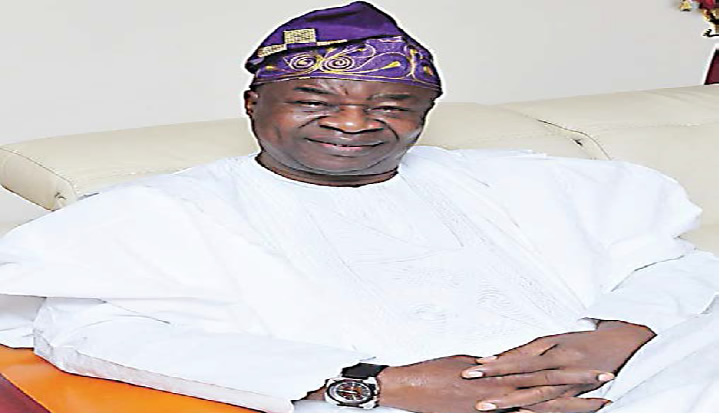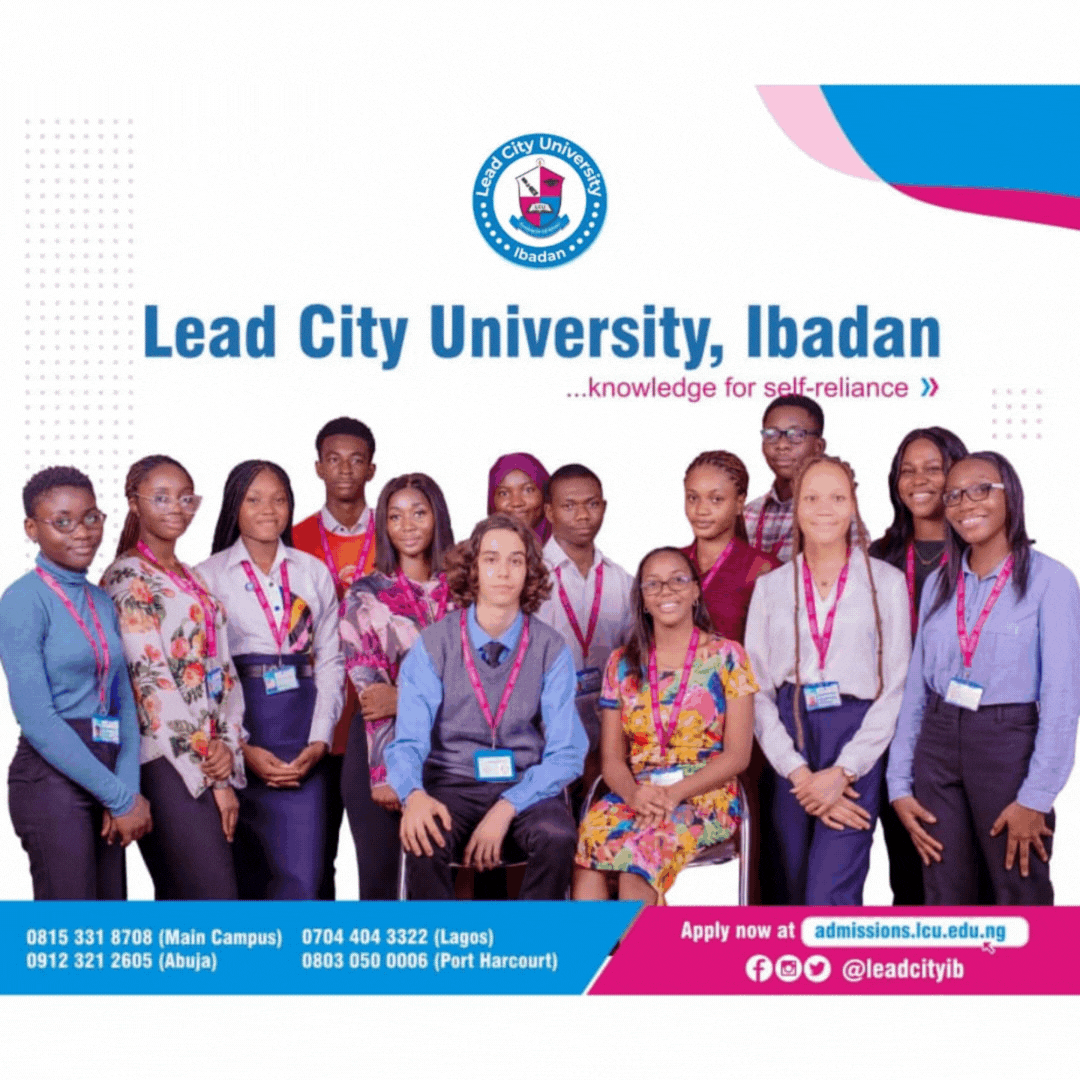A foremost cartoonist, TV and movie producer, and television proprietor, Wale Adenuga, is the brain behind Wale Adenuga Productions. He tells TOFARATI IGE about his career, changes he will like to see in the industry, and other issues.
Right from the days of publishing the ‘Ikebe Super’ magazine, you have been in the business for about 40 years. Looking back now, how would you sum up the journey?
It feels just like yesterday. I only remember that it has been 40 years when I am trying to recount certain things.
I started publishing comic magazines in 1976, and so many things have happened along the line. In 1978, we added the Super Story magazine to our stables.
In 1984, we produced a comedy film titled, Papa Ajasco. The next year, we produced a home video titled, Binta My Daughter.
However, due to the dwindling fortunes of publishing, we had to switch to TV production. We appeared on Africa Independent Television for the first time in 1997 with ‘Papa Ajasco’ as a comedy programme.
Around 2000, we started another TV series titled, Super Story. Since then, we have produced other TV dramas such as Odd World, This Life, and Nnenna and Friends.
When did you decide that it was time to switch from publishing to TV production?
Luckily for us, we have had a horizontal growth, not a vertical one. All our activities have always been centered around entertainment. It was the same characters that were in the magazine that we used to produce the film.
Many companies have collapsed because they could not innovate and move with the times. How have you been able to navigate your way through the major changes in the industry?
A business does not collapse in one day. It is a gradual process, and would see the signs coming. We were into publishing and our magazines were very affordable. In today’s currency, they were about N100, N200; and at most, N500.
However, during the regime of the military Head of State, General Ibrahim Babangida (retd.), a big blow was dealt on the economy when the naira was devalued. Meanwhile, most of what we used in publishing were imported, and the devaluation affected foreign exchange rates. Also, our customers could not afford the new price. Since we had a lot of entertainment content, we thought how we could get it to people. Eventually, we came to the conclusion that television was the appropriate medium to do that. So far, it has turned out to be neater and better. In the days of publishing, sales were affected by different factors. For example, if there was heavy rain on a particular day, we would not be able to sell a lot of magazines. At times, one would also have to run after vendors to get one’s money. However, rain does not disturb television.
These days, you also have to deal with social media. How do you factor that into your business model?
One advantage of social media is that it helps one’s content to be seen all over the world. Programmes on television could only be seen by Nigerians but now, whatever is put online can be seen all over the world. It is a big plus for our business, as local programmes then become international programmes, and one gets fans from all over the world.
Considering that Internet exposes you to international audiences, does that have any effect on the kinds of programmes you create as you now have to cater to not only Nigerians?
With the advent of social media, one needs to improve one’s productivity. Streaming platforms such as Netflix, and satellite TV platforms such as DSTV and GOTV, also spur one to improve one’s craft, because they have certain standards that must be met before contents can make it to their platforms.
The programmes we produce these days are not the same with what we were doing in 1998. Our programmes are now HD-compliant, and subtitled because of our international audience.
The business environment is quite tough. How have you been able to last for over 40 years and still stay relevant?
To the glory of God, we have always been consistent. Right from the onset, we decided that the focus would be on our products, not our faces. All forms of publicity we do are directed towards our products.
Also, we are very particular about quality. We don’t take our viewers for granted. A lot of research goes into what we do because comedy is not easy. If one is not creatively endowed, one would not last beyond one year doing comedy, as people get tired of things quickly. We also employ professionals to handle every aspect of our business, and they are well remunerated. I believe that we have one of the best production teams in the country. Everybody puts in their best, and that is why we always get remarkable results from our productions.
Some people think comedy is just about making people laugh, but you have just mentioned that it takes a lot of research to excel at it. What advice do you have for young talents in that regard?
If one does not source for materials from various sources, one would quickly burn out. If you observe stand-up comedy, you would realise that those who are not hardworking don’t last.
I recall that back then, I used to travel to London, United Kingdom, every year to buy books from all over the world. There was a popular and gigantic bookshop called Foyle’s, where I used to go to research jokes from different places. I would read about Russian, European, American, Canadian jokes. That is the way to build one’s database of jokes.
Most successful comedians are very busy people, because they cannot afford to keep telling the same jokes.
What do you think are the most pressing needs of the film and TV industry?
The film and television industry is such that people outside, including the government, don’t really know about the workings of the sector. For instance, many people don’t seem to know the difference between a producer and an actor. That is why when a governor or the Federal Government wants to award a contract for drama production, they give it to popular actors, instead of the right persons that can actually do the job.
One of the biggest problems in the industry is the lack of structure. Other professionals, such as doctors and lawyers, have associations and structures that govern how they go about their activities. If, for example, the president wants to address any issue concerning doctors, it would be very easy for him to invite the president of the Nigerian Medical Association.
If any member of the association misbehaves, the association can deal directly with the person because there is a structure on the ground. As a matter of fact, the person’s licence could be withdrawn.
I actually don’t know of any other industry in Nigeria that does not have such structures, except film and television.
Meanwhile, a solution to this could have been the Motion Pictures Council of Nigeria Bill, which aims to create a proper regulatory environment for the creative industry. If MOPICON was in place, it would mandate every stakeholder in the film and television industry to belong to an association, and all such associations would be represented in MOPICON. That way, each association would sanitise its members. As things stand, many of the popular actors and film producers in Nigeria don’t belong to any association. The implication is that if anybody in the industry misbehaves, there is no association to report them to.
When foreign organisations come to Nigeria to do business, the first point of contact should be the association. But, what happens is what when representatives of a foreign organisation come to Nigeria, some popular producers who have connections and money will meet them at the airport, and from there take them to nightclubs or other places to have fun. Afterwards, they would sign contracts. That way, creative but poor people who have ideas don’t stand a chance.
The MOPICON Bill was already at the National Assembly, but some stakeholders who are benefiting from the confused state of the industry were part of the people that sabotaged it. Many of us in the industry want MOPICON, but some people are using their influence to thwart it.
Aside from the lack of structures, what are the other pressing challenges in the industry?
Every other challenge can be traced back to the lack of structure. Just like in Nigeria, every social problem, including kidnapping and other crimes, is traceable to corruption. That is because corruption led to the deprivation of the masses.
The day the industry has a proper structure, all practitioners would be forced to belong to one association or the other.
Some would argue that there are already associations in the industry, such as the Actors Guild of Nigeria, and Directors Guild of Nigeria. Are you saying those associations do not have any authority?
What is in existence can best be described as a free enterprise. Many of these associations are structured along tribal lines. MOPICON is supposed to be an umbrella body for all the associations.
Many people believe that the major form of support the creative sector needs from the government is funding. What’s your take on that?
On the issue of funding, I suggest that both federal and state governments set aside at least N5bn in their budgets to use as grants for movie and TV producers.
This is necessary, considering the impact of the sector on the economy, especially in the areas of providing employment and contributing to the gross domestic product of the country.
Another problem in the industry is the lack of training. How can that be properly addressed?
There are quite a number of training centres in the country. One of them is the National Film Institute in Jos, Plateau State.
We also established the PEFTI Film Institute 18 years ago, and it is approved by the Federal Government, through the Federal Ministry of Education. It is recognised by the Joint Admissions and Matriculations Board.
What inspired you to set up the PEFTI Film Institute and have it approved by the Federal Government?
Businesses are usually created to fill a vacuum. In the early years of our film and TV production experience, we discovered that there was a need to train young people because there was scarcity of talents then. There were only few cameramen and editors, and they were very proud. That was not surprising because when something is in small supply, the prices will go up.
Co-incidentally, I went to Ghana, and I visited their National Film and Television Institute. It inspired me to do something like that in Nigeria.
What are some of the challenges the institute has faced in the 18 years of its operation?
The life of a business is like that of a human being. Right from conception, one has to go through different stages of growth.
We faced different challenges, such as scarcity of funds, getting qualified teaching personnel, and teaching materials. Most new businesses have to deal with scarcity of money, scarcity of materials, scarcity of machines and scarcity of men.
One major problem that businesses face is the lack of continuity. Was it an intentional strategy to involve your children in the business, so that they could take over from you?
It is the prayer and wish of every parent that their children should continue from wherever they stopped. But, in many cases, one thing or the other happens to disrupt their plans. However, I have enjoyed God’s grace, and that is what has kept me going.
How were you able to get your children to buy into the vision?
I started the business before they were born. They were practically born into the business. Back when we used to collate magazines, they joined us in doing that. It was just a natural progression for them to get involved in every aspect of the business.
In that case, did you influence what they studied in school?
Creativity does not require one to study a particular course. It is a gift. Some of the best actors out there studied courses, such as Physics, that are unrelated to acting.
As for my children, since we share the same DNA, they also turned out to be creative people. There was no special effort on my part. They all read business-related courses. And be it film or TV production, one has to be business savvy to manage it effectively.
In your case, who did you get your creative streak from?
I was born into a business-oriented family. My father was a big time tobacco distributor that supplied the Ile Ife, Osun State, area. The name of his company was Adenuga and Sons. I later went to the University of Lagos to study Business Administration.
Would it be correct to say you were born with a silver spoon in your mouth?
I don’t know if it was a silver or aluminum spoon, but there was a spoon. Our family was above average.
How did that help you in starting your business?
It made things easy for me. When one is from a family that is above average, one would have no problem of school fees. A lot of brilliant students in those days dropped out of school because they could not pay school fees. My father always told us what we could study to any level we wanted. All the things I needed for my education were provided.
At what point did you know for sure that you wanted to go into the creative space?
I knew right from when I was as young as seven years old. In those days, actors such as Hubert Ogunde and Ade Afolayan (Adelove) used to come to town with their travelling theatres to entertain people. Each time I watched them, I always went back home to make sketches of what I saw. I am a naturally gifted artist. I never studied art in school. I just discovered from an early age that I could draw well. Someone in the family said I must have inherited it from one of my distant maternal uncles who was a sculptor.
While in secondary school, Ibadan City Academy, in Oyo State, I was also one of the best actors. I started a music band in secondary school as well.
What was the name of the band?
It was called the Social Brothers Band. We used to sing the songs of juju musicians, Ebenezer Obey and King Sunny Ade.
You company is involved in the remake of the iconic TV series, ‘The Village Headmaster’. How did that come about?
It came about by divine arrangement. As far back as 2011 when we went to collect an award for Super Story, the late Ambasador Olusegun Olusola (who wrote the first Village Headmaster) was the one who presented the award to me. On receiving the award from him, he whispered to me that he wanted to see me. He gave me his business card and asked me to call him. When I eventually went to his office, he said he wanted me to help him produce a remake of the show. However, I noted that the producer of the show was still alive now, but he said he wanted me to produce it. I accepted but went back to inform him when I heard that the Nigerian Television Authority was the owner of the copyright. But, he said he would get back to me. Unfortunately, he could not get back to me until he died in 2012. I forgot everything about it until three years ago when we discovered that NTA was looking for a company that could partner with them in producing a new installation of the series. We told them we were available, and we discussed the terms and conditions. That was how the partnership was born.
Over the years, you have produced a couple of successful TV programmes. What would you say are the qualities a show must have to be successful?
Before starting, you need to be clear about your intentions for producing the programme. No two productions are the same.
Every show has a target audience, and you have to design it to meet their expectations. You have to start by researching the lives of your target audience, via-a-vis the things they want to see in a drama. You also have to be in tune with the socio-cultural differences of audiences, because what the Igbo viewers want to see is different from what the Yoruba viewers want to see; ditto for Hausa people. If you are producing a Yoruba film, for instance, it has to be in line with Yoruba socio-cultural norms, so it will go down well with the audience. The idea is that when you produce a show for television, you want something that people would see themselves inside. For a show to be successful, the viewers must be able to relate to it.
For example, if you are producing a show for a tribe that likes dance, you have to include dance in it.
Having a successful production is like cooking. You have to put certain ingredients to make it appealing. Even if it is a work of fiction, you have to carry the audience along.
In what ways has your wife supported the growth of your business?
It is said that God knows the end from the beginning, and He does not give one an assignment without supplying the factors of production. If God has put creativity in one, He would supply all you need to make something out of it. I believe God gave me this assignment to entertain the whole world, and He also provided me with all the factors of production. In the light of that, God would not give me a bad wife that would destroy all those things. Rather, He gave me a woman that I’m compatible with. That is why neighbours would never hear of any fight between us. A 19th century poet, David Lawrence, once said that there is nothing as bad as a bad marriage. Also, the Bible says, ‘He who finds a wife has found a good thing’. If one has a good wife, one is very lucky, and one would succeed in all that one does. But, if one does not have a supportive spouse, one would not be able to move forward. They would just be disturbing each other.
It is by God’s grace that I was able to find a good woman right from school. We met as students of the University of Lagos. We studied each other before we became lovers, and when we got married, we became like brother and sister.
Has your wife ever been involved in the operations of Wale Adenuga Productions?
I married a good woman who gave me 100 per cent support from day one. When we were still publishing magazines, we often used female models to sell the magazine. My wife was the one that used to supply clothes for the models. She also used to supervise the photo shoots. She trusted me, and knew it was all for business. Even when we started Super Story, Papa Ajasco, and other TV productions, she used to donate her old clothes to us as costumes.
The truth is that a creative mind cannot withstand a bad spouse, because such person would not be compatible with one’s hopes and aspirations. If you see any woman staying so long with a creative mind, she must be good. Look around you; for any actor or creative mind that has stayed long in marriage, it is because they have good spouses.
But, many people in the creative space seem not to have lasting marriages. Why do you think that is so?
Perhaps, they were not lucky enough. Those that did not have good marriages often opt out to face their business. After God, the most important thing is one’s business, because that is what will feed one and one’s family. If a spouse is derailing one’s business, one might be forced to leave the marriage. It is easier to attain success than to maintain it. So, when one is successful, one has to work even harder. And, such person would not have time for a problematic spouse.
You mentioned that back in the day, you used to sing juju songs. What kind of songs do you like now?
Right now, I like a range of them, from the oldest to the newest. For the old, I like musicians such as Ebenezer Obey, King Sunny Ade, the late Ayinla Omowura, and Yinka Ayefele.
The young artistes I like include Fireboy, Rema, Tiwa Savage, African China, Chidinma Ekile, Ayra Starr, and Asake.
At this stage, how involved are you with the operations of WAP?
I am withdrawing gradually, especially from the micro aspects of the organisation. I hold meetings with the executives once a week, and we rub minds on different things. They are also able to seek my knowledge in certain areas. But, as regards the day to day running of the business, such as employing workers, I am not involved in that. As a matter of fact, I meet many people on the road, who I don’t even know are employees of the organisation. I have left certain things to the managing director, and other directors.
How do you unwind?
At 74 years old, I watch my health and enjoy music. I don’t play with my gym time. I have a personal gym, so I make sure I work out regularly. I also like watching movies.
People like me are lucky because we have been able to transform our hobbies into businesses. Watching movies and TV shows entertain me. I have no dull moments. I still work on stories at times. I relax well; although not publicly. I am not a fan of Instagram. I always make sure I balance business and pleasure.
How do you like to dress?
Since my days in the university, I have never had a particular style of dressing. However, I also want my spirit and soul to be free, so I like to wear casual and comfortable clothes. I actually don’t have a single pair of suits, and I can never be caught wearing one. Back in the day, I usually wore shorts.
Share your story or advertise with us: Whatsapp: +2347068606071 Email: info@newspotng.com













